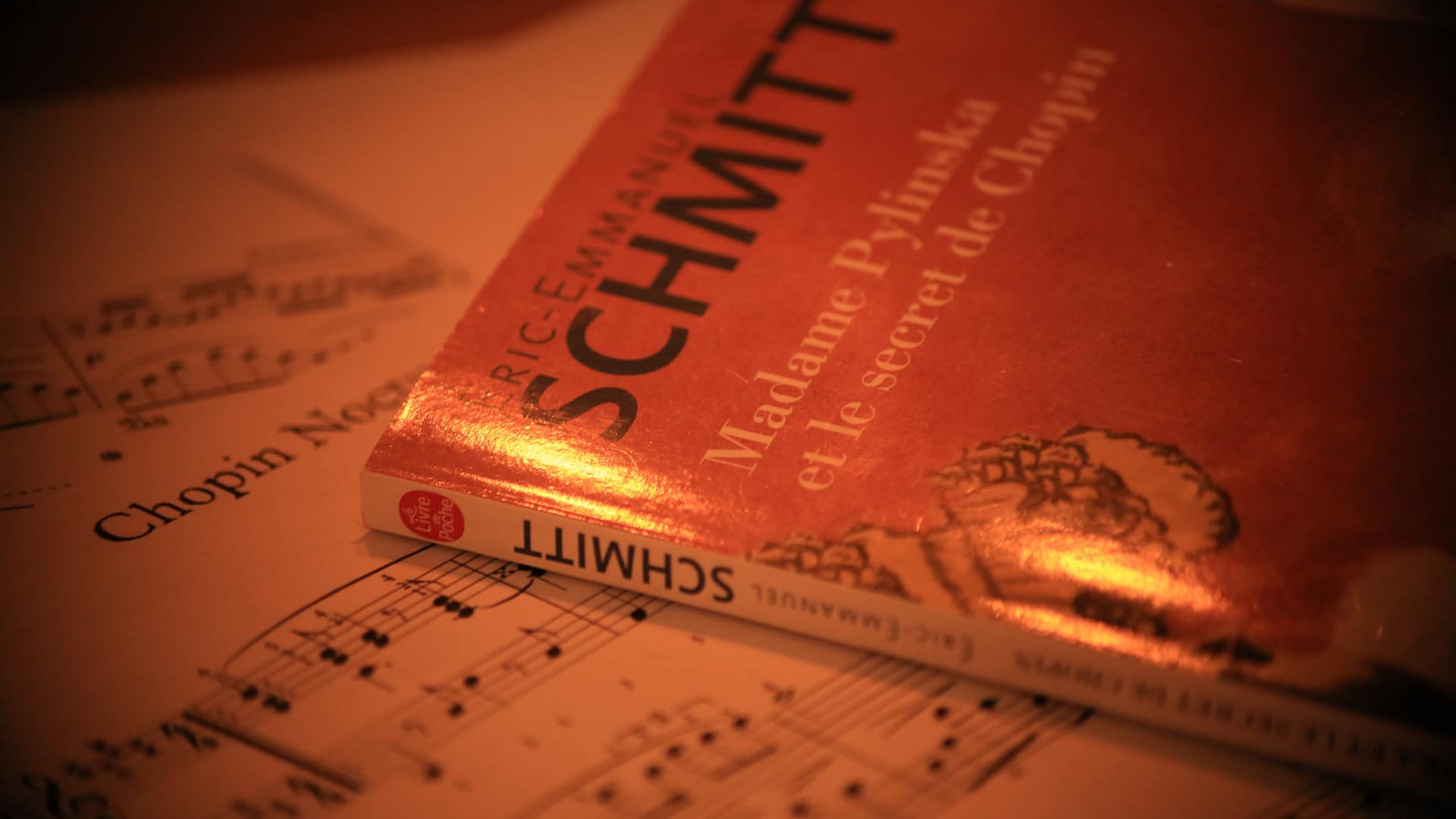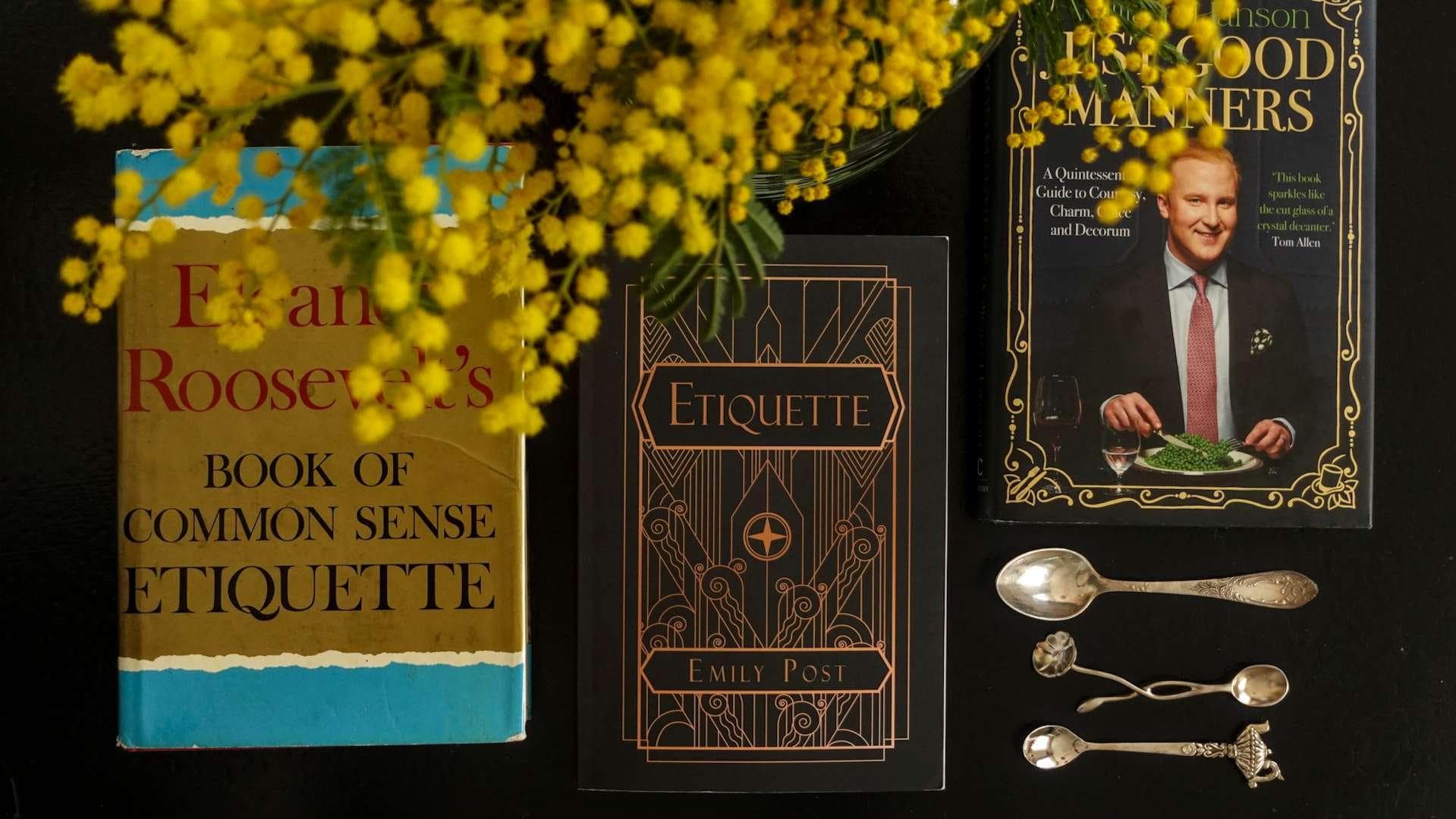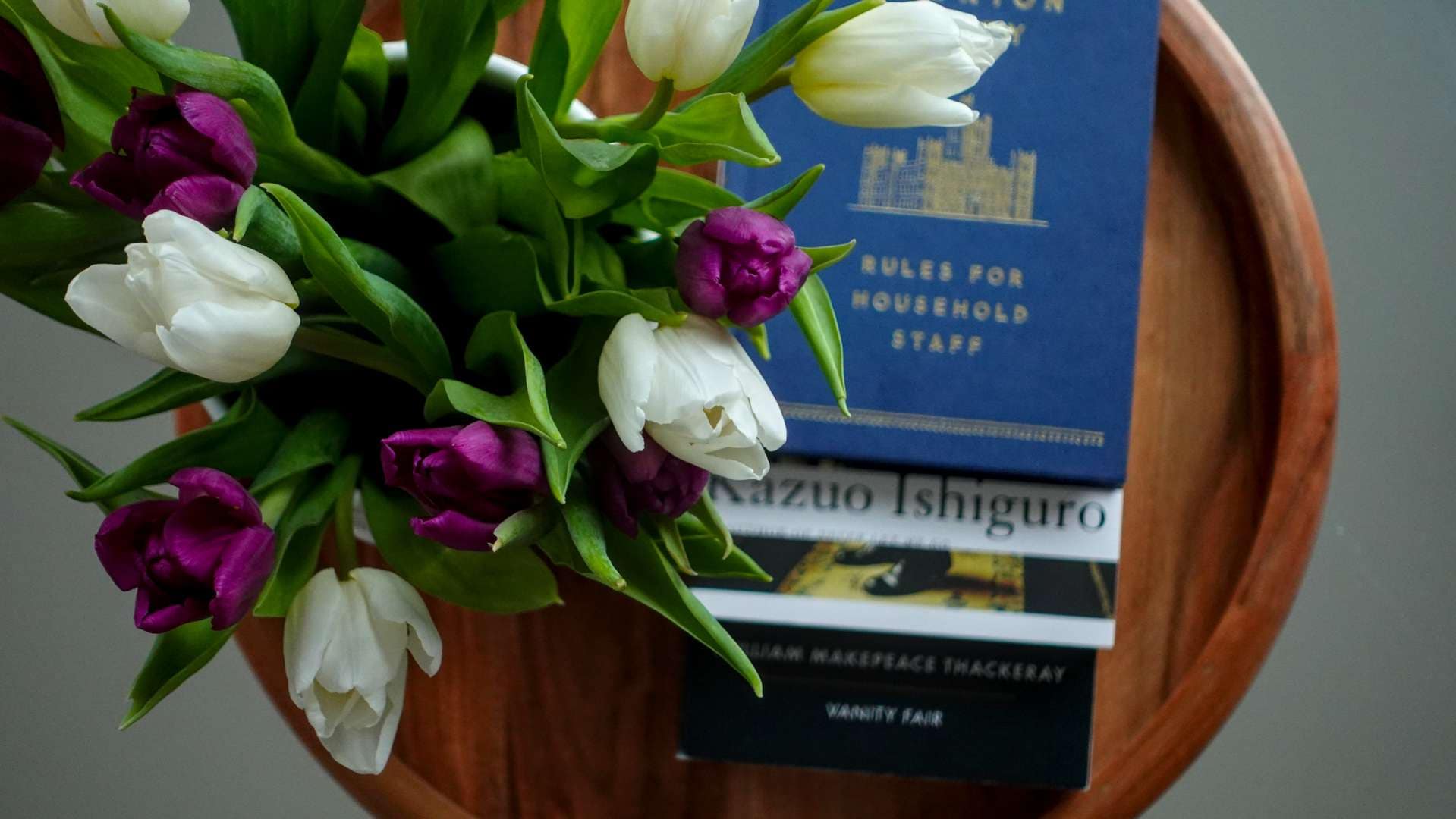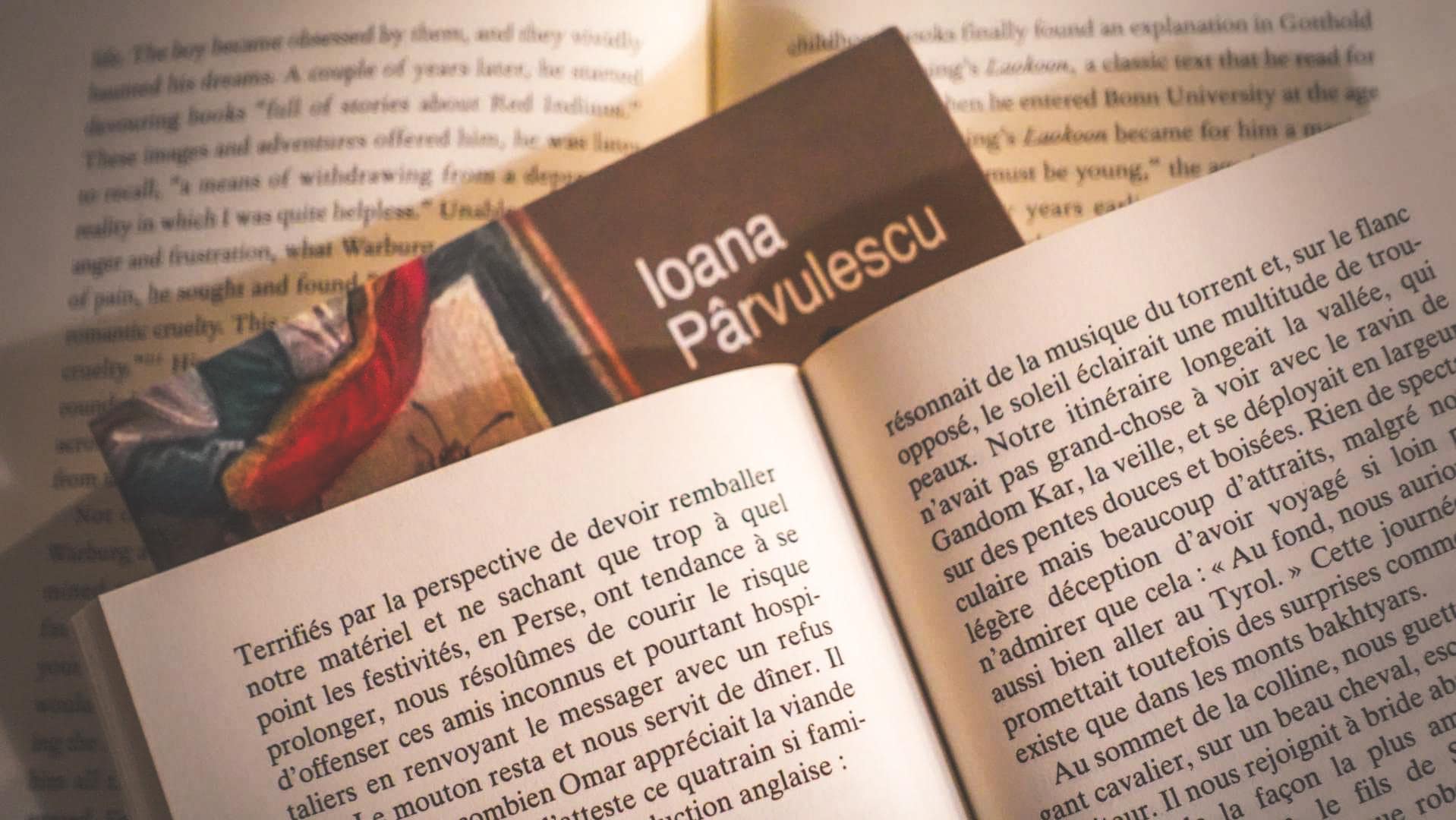One of the most poetic writers of the contemporary French litterary scene, Eric-Emmanuel Schmitt has a rich and sensitive univers that transpires through every one of his books. Translated all over the world, he has known fame through novels and theatre, but this particular short novel has not yet been translated into English. However, because of the special place it holds in my heart, I wished to speak of it today, in hopes that it will soon be available for all to enjoy. A book of music and inner discoveries, of honesty and harmony, Madame Pylinska and the secret of Chopin.
The story in one phrase : A young man studying philosophy in Paris starts taking piano lessons from an old Polish pianist, in an attempt to master Chopin’s music as his aunt used to play it in his childhood.
How does it make me feel : A book that makes me hear music in the silence. It’s light but consistent, like a silk velvet, that smells of spring flowers, under a cold and steady rain. I feel slightly melancholic, like I usually feel when finishing a book I really loved.
Top 3 details :
- A lesson in classical music. By comparing Chopin’s style to other composers, we are lead to understand the intimate structure of classical music, as Madame Pylinska, the Polish piano teacher, constructs a pedestal for Chopin’s greatness. For Chopin lovers, her arguments are a beautiful expression of the feeling we have when listening to his music. For others, I wouldn’t know…🙂
- Pairing words with sounds. I always admired Kandinsky’s approach to abstract art. In his essay “Concerning the spiritual in art” published in 1912, he points out one of the things I like the most about music : the fact that being the most non-material of arts, it has a certain ease in expressing inner life. Eric-Emmanuel Schmitt goes farther by saying “Chopin doesn’t begin composing from something. No mental image pre-dates his music. He doesn’t express feelings, he provokes them”. I would say that writers are confronted with a similar challenge. For even if words can awaken us to emotions, litterature is almost always analysed through the intellect, and not the soul. Chopin is the soul, and Eric-Emmanuel Schmitt is slowly teaching us to pause the analytic mind and leave room for the abstract emotions.
- Passionate pastimes. I could have said hobbies, but there’s a lack of elegance in the word that does not suit Chopin. So pastimes… in a world where we are encouraged to learn a skill, perfect it, and make a living out of it, the book is a praise to playing the piano simply for the pleasure it gives you. Developing more than just one of our centers of interest allows us to multiply the possibilities of accomplishment. So let’s keep our options open, you never know where happiness comes from.
My favourite character : Blonde, feminine, powdered, smelling of iris and lily of the valley. Aunt Aimée is the beginning and the end of the story, a central character in Eric-Emmanuel’s life and the image of a differently strong woman. The free spirit that did not wish to commit to anyone other than herself, she is able to understand the many stages of doubt, of frustration, of searching for the right state of mind to experience life at its fullest. She is a guide and a model for her young nephew, as she represents both glamour and inner richness.
Yin/Yang : As Yin a story, as Chopin’s music is constructed in a minor tone. In Taoism, the Yin energy manifests as faded, discreet, internal and receptive. In many ways, it is the same in Chopin’s pieces, as he is not the type of composer to energize you, nor does he strike me as an enthusiast. And the story is perfectly in line with this energy of discreet sentiment and elegant inner world.
Life Lesson : My life lesson for today resides in a simple phrase from the book : “Se perfectionner réclame un travail qualitatif, pas quantitatif” / “Improving oneself requires a work of quality, not quantity”. As master Pylinska says, the fact that Chopin only composed for the piano proves his wisdom in a world where fame came from the opera and the symphonie. Knowing oneself’s qualities and improving on them, instead of endlessly chasing more and more of what does not suit us, that is what I choose to meditate on after reading this book.
Favourite Quote : Au milieu du salon ensoleillé, un nouveau monde avait surgi, un ailleurs lumineux flottant en nappes, paisible, secret, ondoyant, qui nous figeait et nous rendait attentifs. A quoi ? Je l’ignorais. Un évènement extraordinaire venait de se dérouler, l’efflorescence d’un univers parallèle, l’épiphanie d’une manière d’exister différente, dense et éthérée, riche et volatile, frêle et forte, laquelle, tout en se donnant, conservait la profondeur d’un mystère.
My translation :
In the middle of the sunny living room, a new world had arisen, a luminous elsewhere flowing like silk, peaceful, secret, undulating, which froze us and made us mindful. To what? I didn’t know. An extraordinary event had just taken place, the efflorescence of a parallel universe, the epiphany of a different way of existing, dense and ethereal, rich and volatile, frail and strong, which, while giving itself, kept the depth of a mystery.
Why you should read it : Reading this brief yet concentrated novel is like a peeling for the soul. Rubbing off the layers of dead feelings we accumulated, in order to become permeable to the pure emotion of beautiful words in the company of beautiful music. In French, we have a beautiful expression for describing this particular sensitivity : à fleur de peau. It litteraly translates to the flower of skin. The flower as in the most delicate, ephemeral yet most spectacular part of the whole. A book that makes your skin bloom with emotion.
91 pages. Sometimes, that’s all it takes for me to sparkle with joy. A short but excellent introduction to the universe of Eric-Emmanuel Schmitt.
The Ritual
Close your eyes and listen.
Now tell me, what does the music smell like ?
In 1708, Giovanni Maria wrote to his brother : “I have discovered a scent that reminds me of a spring morning in Italy, of mountain narcissus, orange blossom just after the rain. It gives me great refreshment, strengthens my senses and imagination”.
It was the beginning of what we know today as Eau de cologne. There are many stories about the light and refreshing perfumed water from Cologne. But the one that spoke to me the most was that of Giovanni Maria Farina, and his Farina 1709. I keep my miniature bought in Köln as a precious reminder, that something that is volatile, can be powerful enough to create a different sensation every time someone smells it, and that, for more than 300 years. In my imagination, this was Chopin’s perfume. Rainy but floral, with a subtle depth of sandalwood and olibanum, an elegant and never obtrusive scent of piano…
I make myself confortable and get ready to enjoy the book. It’s so short that every moment needs to be appreciated. When it comes to the interpretations of Chopin, I cannot resist the pleasure of recommending the recordings of Maria-João Pires. One of my favourite pianists, she feels Chopin’s music with so much grace that it almost feels like a meditation. Look for her, listen to her, and get closer to music.
One of the phrases in the book got my attention in a very visual way : “Bach proposes crayon sketches that you can colour yourself. But not Chopin. His technique is more like watercolor. Everything blends in a unique way and the blurr of the harmonic contours looks like drops of water mixing their hues.”
I am very fortunate to have an exceptionnally talented watercolorist to call my dearest friend. She tought me to appreciate the subtlety and character of watercolor, its infinite elegance distilling itself from water and pigment. So maybe you wish to try playing with a brush, or simply appreciate great artists of this mastery, whichever you choose, know that it will work wonders with some Chopin in the background.
Everything I choose to speak about on this channel is in the spirit of balance. It will come as no surprise that while I wish to speak of good wine today, it is with an intention of awakening our senses and not numbing them. So if you choose to do so, drink responsibly.
Eric-Emmanuel Schmitt is born on the outskirts of Lyon, the region of the Rhône Valley, and it just so happens to be my favourite wine region in France. Now, I have to admit that navigating the French wine culture is not an easy task, as the categories are strongly connected to the region, the sun exposition that the vineyard gets and the name of the terroir. I personally feel more confortable talking about types of grapes, as that gives me a better idea of what I’ll drink even before opening the bottle. And if you choose to take this road, it’s easier to understand a wine region. For example, a red Côte du Rhône will definetly have these three types of grapes in some proportion : Grenache, Syrah and Mourvèdre. The Grenache has almost no tannins and is not acidic, while the other two can develop a bit of both, balancing the whole. The notes will take you towards berries and black pepper, maybe licorice and spices if you have more Syrah, and when they age, they develop a light leathery undertone.
This particular bottle comes from a domaine that produces family wine since 1772. It’s fascinating how in a few drops of red nectar, you find centuries of history, the sun, the soil, the rain, and all the stories they imagined together.
We’ll end on a sweet note, that I’m hard-pressed to connect with the book. It’s just one of those unexplainable mind connections, like saying that something tastes blue. Apple pies must be one of the most common desserts around the globe. I cannot decide on a favourite, but this version coming from Normandy is definetly in my top 3.
30 or so minutes in the oven and you have a Tarte aux pommes normande, or Normandy apple pie, that smells just like Chopin’s music. Soothing, delicious, envelopping you in an invisible embrace.
Full recipe in the Recipes Menu.
I had a wonderful time reading Madame Pylinska and the secret of Chopin. The book itself is a jewel, and all that it inspired made me create an afternoon of well-being. I hope you will give it a try, maybe even in French, but we’ll talk about reading in foreign languages some other time…
Until then, enjoy your reading and your rituals !
Shopping List
If you would like to support The Ritual of Reading, please consider purchasing your books from the Bookshop.org dedicated site by clicking the link below. You get to support local bookstores and I make a small commission with every purchase. Thank you !





